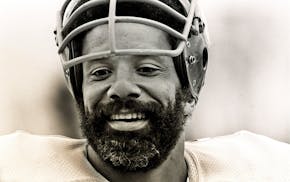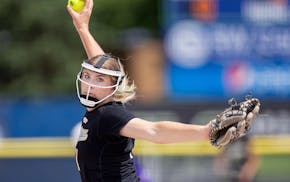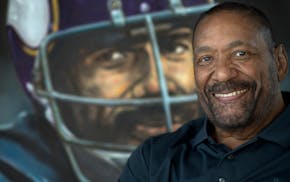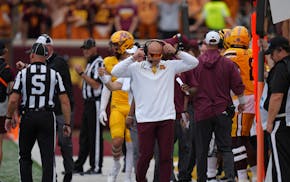The Twins are playing their lone series of the season at Oakland this weekend. These will be the last Twins-Athletics games in that city, based on a couple of assumptions.
The first of those seems safe: The Twins and A's won't meet in the 2024 American League playoffs.
The second isn't as solid: The current plan of A's owner John Fisher, to play three seasons in Sacramento and then move into a new domed ballpark in Las Vegas, comes to fruition.
You can make a case that for the 25 seasons (1969-93) that the American League was divided into two divisions, the Twins' collisions of fate with the A's were their most interesting in the original AL West.
The Twins were the power in the division's first two seasons, 1969 and '70. The A's were the division winners for the next five seasons, winning three consecutive World Series from 1972 to '74.
Later, the teams represented the AL in five consecutive World Series: Twins winning in 1987 and '91, and the A's winning three consecutive AL pennants from 1988 to '90, and the '89 Earthquake Series vs. San Francisco.
The A's moved from Kansas City to Oakland and the Coliseum in 1968. It's a dump now, but it remains an interesting place to play — with huge foul territory, a mysterious sky for day games and dead air for night games.
Roy Smalley, the Twins shortstop for five-plus seasons starting in 1976, said Friday:
"Knowing I never have to catch a high pop fly in Oakland again is a good thing. I never could figure why it was different in Oakland, but when it was a sunny day without clouds, you couldn't see the ball. And once I flipped down the sunglasses, it was too dark for some reason."
Which explains the conclusion of my all-time favorite ballgame among many witnessed in the Coliseum — and not one from the AL's old West, not from the Tom Kelly-vs.-Tony La Russa era of World Series appearances.
This would be the "Moneyball" series decider, Twins-A's in a 2002 Division Series. The A's were 22-26 in late May, then went an insane 81-33 to finish 103-59. They had Barry Zito (23-5), Mark Mulder (19-7) and Tim Hudson (15-9) to make the starts, and Billy Koch (44 saves) as the closer.
The Twins were 94-67 and back in the postseason for the first time since 1991 with new manager Ron Gardenhire. Brad Radke made two starts (including Game 5), and Eric Milton, Joe Mays and Rick Reed one apiece.
They mashed Hudson and won 11-2 in Game 4 in the Metrodome to stay alive, and the teams were in Oakland the very next afternoon, under one of those blue, high skies.
It was a taut game, mostly Radke vs. Mulder, and then in the ninth, A.J. Pierzynski jumped Koch for a two-run home run to make 4-1. Later, David Ortiz doubled in a run, it was 5-1 Twins, and here came Eddie Guardado to send his team to the American League Championship Series.
Maybe.
Ten, 12 minutes later — it only seemed like an hour for Twins followers — it was 5-4 and the A's had a runner on with two outs, with Ray Durham batting.
Denny Hocking was in the game at second base. Doug Mientkiewicz, a great gloveman, was at first. Durham hit a foul pop-up, not a soaring one, but enough to cause problems under the East Bay's mysterious skies.
"I was screaming at Denny, 'I don't see it, I don't see it,' " Mientkiewicz relayed by message Friday. "As soon as Denny said, 'I see it,' then I picked it up, but I wasn't going to get in his way."
Hocking said this week: "I never thought I was in trouble on that ball. It wasn't one where I had to look high into the sky. I was coming in from angle."
Hocking catches it on the run. Twins win, 5-4. Wild celebration ensues. In the midst, Hocking is spiked on the hand and has to miss the ALCS, which the Twins lose 4-1 to the Angels.
That was only part of the indignity suffered by Hocking after his glorious race to corral that Durham foul fly.
The "Moneyball" movie was in the making, based on that unlikely, statistics-driven season for the A's that started to change baseball as we had known it.
"I didn't go to the movie for quite a while, but people kept telling me, 'You gotta see it,' " Hocking said. "So, I'm there in a crowded theater, and in the movie, they have Game 5 being played at night, and then there's the game-ending popup … and they have Corey Koskie catching it at third base."
How did you react to that?
"How did I react!" Hocking said. "I stood up and said loudly, 'This is bull!' And then I walked out."

Reusse: Country boy Jim Marshall never lost his lust for life

Reusse: As Caswell Park does itself proud, a hometown team runs hard into a challenge

Reusse: Jim Marshall belonged to us, and Minnesota loved him for it

Reusse: Murphy's return will be a fun time on the ice


